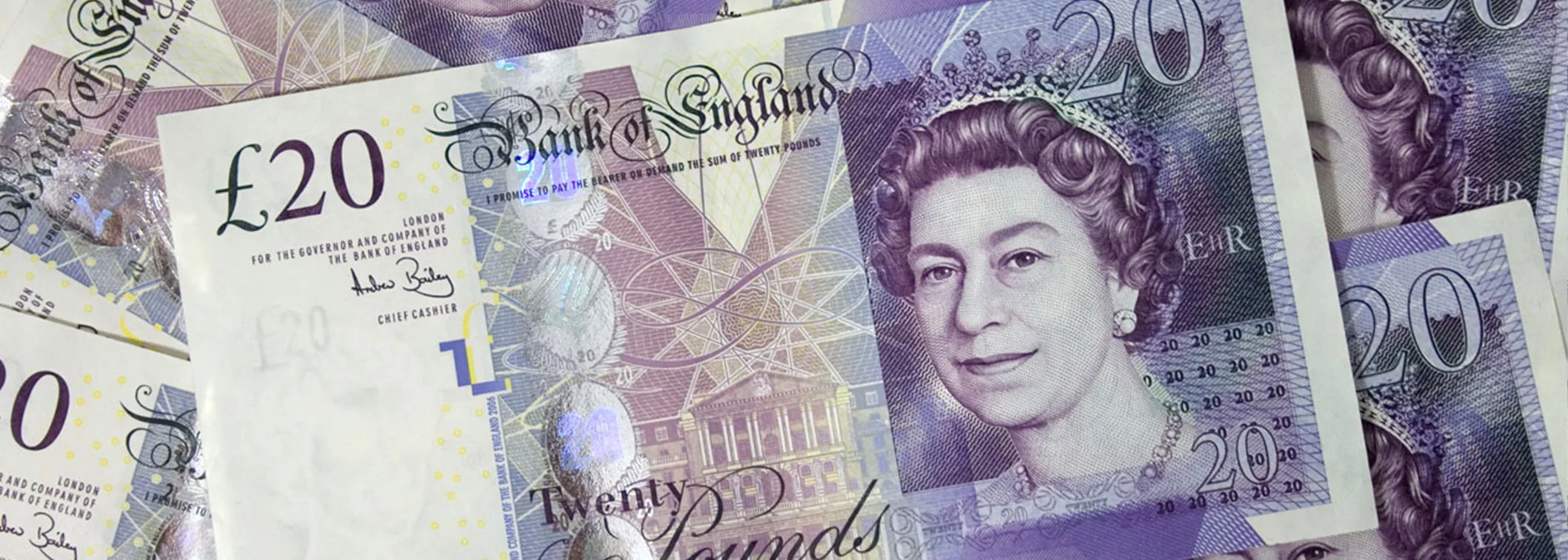With interest rates as high as they are currently, it is tempting to simply take the rate on offer from your bank and avoid the riskiness that comes from investing in shares. Additionally, higher and additional rate taxpayers are finding supposed value in buying government bonds directly, which offers a significant tax benefit relative to earning interest from a bank. But the long term investor is still very likely to be better off invested in shares, even after the tax break is considered.
When To Invest In Cash or Government Bonds
Everyone should, of course, have some ‘instant access’ cash available to them and it’s nice that we can earn about 4% on those cash savings.
Cash – in a bank or invested directly in a government bond – is also useful for needs arising in the next year or two, like if you plan to buy a property. A bank account with a fixed-term of a year or two will earn higher interest than an ‘instant access’ account, probably 5-6%. But interest paid by a bank is taxable as income (so at 45% for an additional rate taxpayer). If you have the knowledge and ability to do so, you could buy a government bond that matures in a year or two and would then earn most of the return tax-free (Bloomberg explains how it works here).
Why Cash Is Not King For The Longer Term
5% might look like a pretty good return to lock in for a long time, especially if you can earn that ‘tax free’ by buying a government bond. But doing so means you must run at least one of two significant risks: inflation risk or re-investment risk.
Inflation risk: if inflation rises or even stays persistently high, then the government bond is likely to lose money, at least in the short term. Government bonds have lost around 50% of their value in recent years. This is not a risk-free investment! Perhaps you don’t care if you are prepared to hold the bond until it expires, but you probably will care if it turns out you’ve ‘locked in’ a return that proves to be below inflation.
Re-investment risk: in order to avoid the first risk, you could choose to invest only in very short-term bonds that expire in a maximum of 1-2 years or a fixed term savings account of a similar length. But if interest rates fall between now and the bond’s expiry (or the end of your fixed-term bank deposit), then what do you do? At that point, you will be faced with either earning very little on your cash or you’ll have to invest in riskier things like shares in order to try to beat inflation. By that point it’s pretty likely that shares will have already increased quite a bit (just as they did in the 2010s as interest rates fell).
The answer, for the long term investor, is to have a significant portion of their investment portfolio in shares. We don’t want to get into the details here (although the technical bit is below and we’re happy to respond individually if you contact us) but over the long-term it is extremely likely that shares will outperform bonds. In an era of high inflation, it’s also reasonable to expect that shares will not only perform better than bonds but to do so with less volatility – or, in other words, less risk.
The Government Bond Tax Break is NOT Enough to Justify Long Term Gilts Over Shares
This part is for the City folks buying long term gilts instead of shares!
Many additional rate taxpayers are buying government bonds directly because there is, effectively, very little tax to pay on the return. A 5% tax free yield sounds pretty good, and it is for the short term.
But when compared to owning shares, the tax savings on gains from government bonds is the capital gains rate of 20% and not the 45% savings it would be if compared to interest income. This hugely dilutes the tax advantage.
If we assume a 10 year time horizon, then shares need only earn about 2.30% more per year than bonds in order for the investor to make more money investing in shares. While it’s certainly possible that shares will fail to outperform bonds by 2.30% per year over 10 years, it would be a significant historical anomaly. It is far, far more likely that over a 10 year time period a diversified portfolio of shares will outperform government bonds, even after the tax break is considered*.
Of course, the supposed tax benefits of government bonds are mute if the investments are held in ISAs, pensions or certain other tax-advantaged structures. In this case, the investor is simply taking on a significant amount of inflation or re-investment risk without the tax benefit of a directly owned government bond.
*depending on how you calculate it, the equity risk premium of the FTSE 250 right now is somewhere between 4% and 12% so a ‘hurdle rate’ of 2.30% should be eminently achievable.
Cash for the Near Term, Shares for the Long Term
There are, undoubtedly, scenarios where ‘Cash is King’ but, as ever with personal investing, it comes down to one’s time frame. Despite the relatively high interest rates currently on offer and the tax advantage of owning government bonds directly, making money over the long term is still best achieved by owning shares.

As featured in






 Production
Production